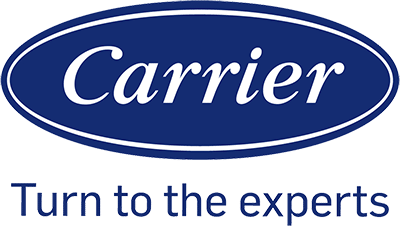Understanding Your HVAC System
Our HVAC system plays a crucial role in maintaining comfort in our homes by regulating temperature and ensuring good air quality throughout the year. It’s essential to discern the primary components of our system and grasp how they work together to achieve energy efficiency and operational excellence.
Key Components:
- Thermostat: This is our control panel for setting the desired temperature.
- Air Conditioner: Works by removing heat and humidity from indoor air.
- Furnace: Provides heating by warming the air during colder months.
- Ductwork: Channels the conditioned air throughout the home.
- Vents: The pathways through which the air is delivered into each room.
- Filters: Essential for maintaining air quality by trapping dust and other particulates.
To ensure an efficient HVAC system, regular HVAC maintenance is vital. This involves:
- Inspecting and changing filters regularly to prevent airflow restrictions and maintain air quality.
- Scheduling seasonal maintenance checks to keep the system running at optimal efficiency which can result in significant energy savings.
- Sealing and insulating ducts to improve system efficiency by as much as 20% according to the U.S. Department of Energy.
Our aim is to deliver comfort and efficiency through our HVAC system’s performance. Simple maintenance tasks can prevent costly breakdowns and prolong the life of our equipment, sustaining the desired home environment while conserving energy. Maintaining our HVAC system is not just about immediate comfort; it’s a long-term investment in our home’s energy efficiency and air quality.
Pre-Season Preparation

As the seasons change, it’s crucial for us to ensure our HVAC system is primed for efficient operation. It’s time to focus on specific maintenance tasks that will keep our indoor air quality high and our energy bills low.
Assessing and Replacing Air Filters
Monthly checks on our air filters can prevent unwanted dust and pollen from circulating throughout our homes. As part of our routine maintenance, we’ll:
- Examine filters for dirt build-up
- Replace clogged filters with new, high-efficiency options
Air filters should be replaced every 90 days at the least, or more frequently if we have pets or suffer from allergies.
Inspecting for Leaks and Ductwork Integrity
Leaks in our ductwork can undermine the efficiency of the HVAC system. To maintain optimal performance, we’ll:
- Use a smoke pencil or incense stick to detect drafts indicating leaks
- Secure all connections and seal any leaks with mastic tape or foil tape
This task is a foundational aspect of spring maintenance, ensuring air is delivered effectively throughout our home.
Clearing Debris and Ensuring Outdoor Unit Clearance
Ensuring there are no obstructions around our air conditioning unit is key to preventing overheating and compressor damage. We commit to:
- Remove leaves, branches, and other debris from around the unit
- Maintain at least 2 feet of clearance around the outdoor unit for adequate airflow
Consistent clearance checks prevent DIY maintenance from turning into costly repairs.
Testing Thermostats and Controls
As a final step before we transition between heating and cooling seasons, we’ll:
- Test all thermostats to ensure accurate temperature control
- Confirm that all HVAC controls are functioning properly
By methodically testing our system, we safeguard against any unexpected issues during peak usage times.
Professional HVAC Inspection

Regular professional inspections of your HVAC system are essential to maintain efficiency, prevent costly repairs, and avoid equipment breakdowns. We ensure your system, from furnace to air conditioner, is performing optimally throughout the seasons.
Scheduling a Professional HVAC Technician Visit
When to Schedule: Plan for biannual check-ups — once in spring for your cooling system and once in fall for heating.
- Spring: Focus on air conditioner components.
- Fall: Concentrate on the furnace and heat exchanger.
Booking Process:
- Contact a reputable HVAC technician.
- Align your schedule with the seasons for optimal maintenance timing.
Assessing Critical Components and Efficiency
HVAC technicians meticulously examine critical parts to secure ongoing system health and efficiency.
Essential Components Examined:
- Blower: Checking for airflow problems.
- Evaporator Coils: Ensuring they are clean and unobstructed.
- Heat Exchanger: Inspecting for signs of corrosion or damage.
- Furnace/Boiler: Performance and safety control checks.
Efficiency Measures:
- Thermostat calibration.
- Inspection of electrical connections.
- Air filter replacement to maintain clean air flow.
Verifying Refrigerant Levels and System Pressures
Correct refrigerant levels and system pressures are vital for the air conditioner’s efficiency and to prevent strain on the compressor.
- Refrigerant Check: Confirm levels are within manufacturer specifications.
- Pressure Assessment: Measure and adjust to ensure optimal system performance.
Outcome:
Ensuring your system’s refrigerant levels are accurate to keep your HVAC running smoothly.
Seasonal Maintenance Tasks
As seasons change, we must prioritize the health of our HVAC system to boost its longevity and enhance its efficiency. Regular maintenance mitigates the risk of costly damage and reduces energy consumption.
Cleaning Air Ducts and Vents
We begin with thorough spring maintenance by deep cleaning our air ducts and vents. This process not only ensures clean air circulation but also bolsters our system’s efficiency. Dust and debris accumulation over time can obstruct airflow and strain the system, leading to increased energy use.
- Step 1: Inspect air ducts and vents for visible dust and debris.
- Step 2: Use a high-powered vacuum to remove the accumulated dirt.
- Step 3: Check for potential leaks or damage in the ductwork.
Maintenance of these components is key to maintaining indoor air quality and preventing issues that could lead to higher energy bills.
Checking and Cleaning the Furnace and Heat Pump
Heating equipment maintenance is essential for the colder months. We inspect the furnace and heat pump for signs of wear or damage.
- Step 1: Shut off power to the heating system.
- Step 2: Clean or replace the furnace filter to promote efficient operation.
- Step 3: Inspect the heat pump for damage and clean any debris from around the unit.
Routine inspection and care of these elements extend the life of our heating equipment and prevent unexpected failures.
Evaluating and Maintaining the Condensation Drain
When we transition to using air conditioning, we must focus on the condensation drain. A clogged drain can lead to water damage and affect humidity levels inside our home.
- Step 1: Check the drain pan for standing water or signs of overflow.
- Step 2: Clear any blockages in the condensation drain line.
- Step 3: Treat with an algae inhibitor to prevent mold and mildew growth.
These measures protect our homes from water damage and maintain optimal function and efficiency of our cooling system.
Safety Considerations and Energy Savings
Ensuring the safety and efficiency of your HVAC system is crucial to avoid costly repairs and enhance energy savings. Regular maintenance is the key to keeping your system running smoothly and safely.
Installing Carbon Monoxide Detectors
To safeguard your household from the silent threat of carbon monoxide (CO) poisoning, it is imperative to install carbon monoxide detectors near your HVAC and sleeping areas. These devices are essential for early detection of CO leaks, which can stem from a faulty HVAC system. Regular testing and battery replacement are critical steps in ensuring these devices function correctly, providing an essential layer of safety and peace of mind.
- Test monthly: Press the test button to confirm the alarm is operational.
- Battery replacement: Replace batteries at least once a year or as recommended by the manufacturer.
- Location: Install detectors on every level of your home, especially near bedrooms and HVAC units.
Lubricating Moving Parts and Avoiding Ice Dams
Proper lubrication of your HVAC system’s moving parts reduces friction, preventing wear and tear that can lead to expensive breakdowns. Tending to this aspect of maintenance ensures efficiency and can result in noticeable energy savings over time.
- Lubrication: Use the manufacturer-recommended lubricant to maintain parts.
- Inspection: Regularly check these parts for signs of excess wear.
To prevent ice dams, which can cause damage to both your roof and HVAC system by forcing your system to work harder, it’s important to ensure good attic insulation and ventilation.
- Attic insulation: Proper insulation keeps heat from escaping, reducing the chance of ice dam formation.
- Ventilation: Ensure your attic is well-ventilated to maintain a consistent temperature and avoid ice buildup.
By focusing on these safety considerations and maintenance tasks, we protect our homes from potential hazards and enhance our system’s energy efficiency, saving money and securing comfort year-round.
Frequently Asked Questions
Maintaining an HVAC system is critical to ensure efficiency and longevity. We’re here to answer the most common questions about HVAC maintenance.
What steps are included in a standard HVAC system service?
During a standard HVAC service, technicians typically clean the system, check refrigerant levels, test for leaks, inspect electrical connections, and evaluate the overall system performance to ensure everything is operating correctly.
How often should HVAC systems undergo routine maintenance?
We recommend that HVAC systems undergo routine maintenance at least twice a year, typically in the spring and fall, to prepare for the extremes of summer and winter weather.
What tasks are typically performed during seasonal HVAC maintenance?
Seasonal HVAC maintenance tasks include inspecting and cleaning coils, replacing filters, calibrating thermostats, checking the condition of belts and motors, and ensuring the drainage system is clear and functioning properly.
Could you outline the phases of planned maintenance for an HVAC system?
Planned maintenance for an HVAC system includes an initial inspection, immediate repairs for any urgent issues, scheduled repairs for less critical problems, and ongoing measures such as filter replacement and system monitoring for performance.
What specific items are inspected during a commercial HVAC maintenance check?
During a commercial HVAC maintenance check, we inspect air filters, ducts, belts, bearings, motors, electrical switches, thermostats, safety devices, and refrigerant levels, among other components, to ensure reliable and efficient operation.
Are there any HVAC maintenance tasks homeowners can perform themselves?
Yes, homeowners can replace or clean air filters, keep vents unobstructed, ensure the outside unit is free from debris, check thermostat settings, and listen for unusual noises which may indicate a need for professional maintenance.




